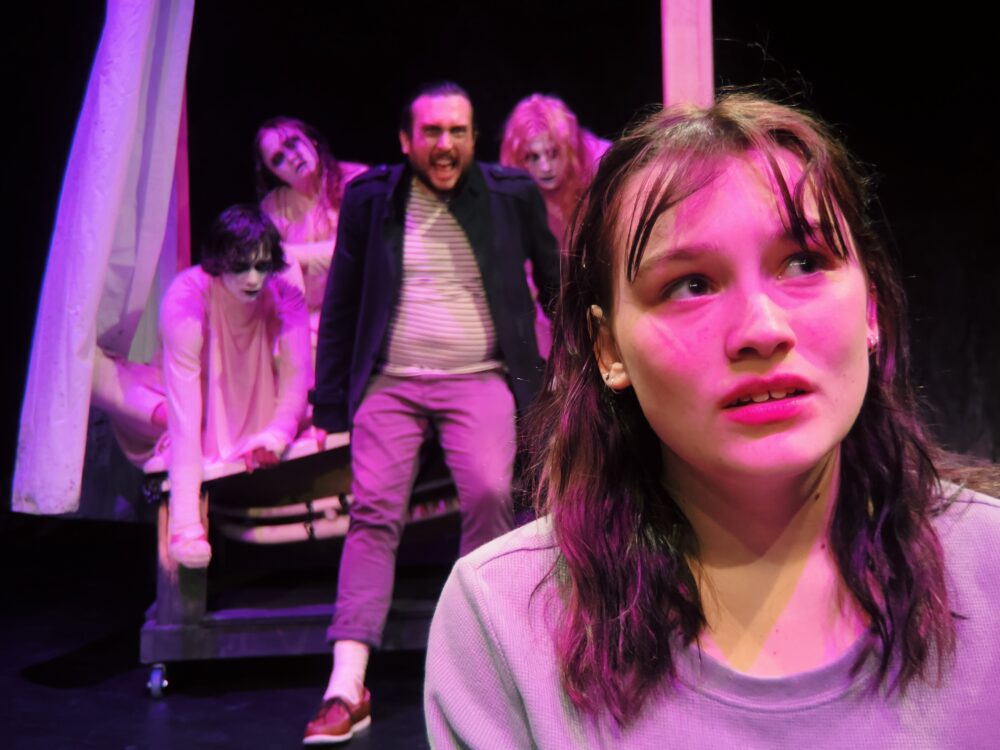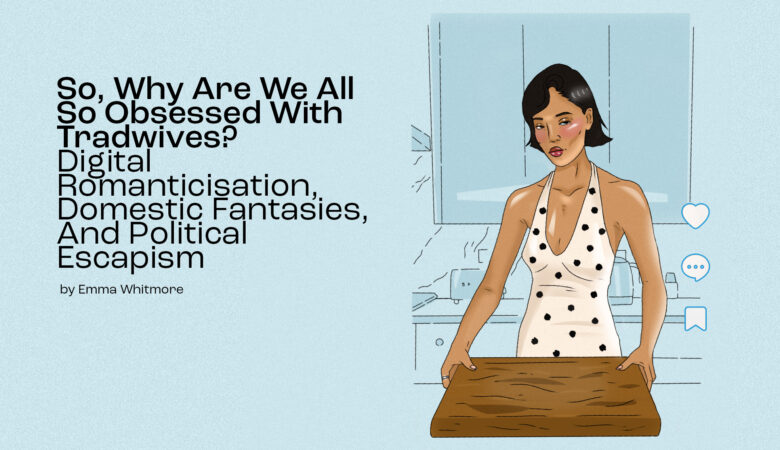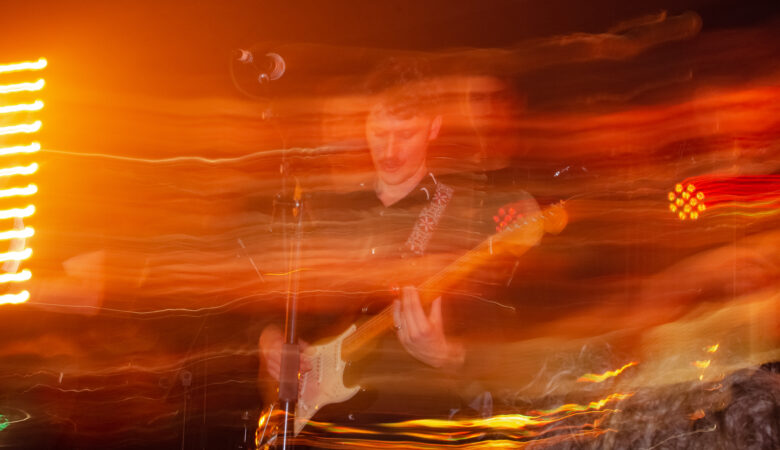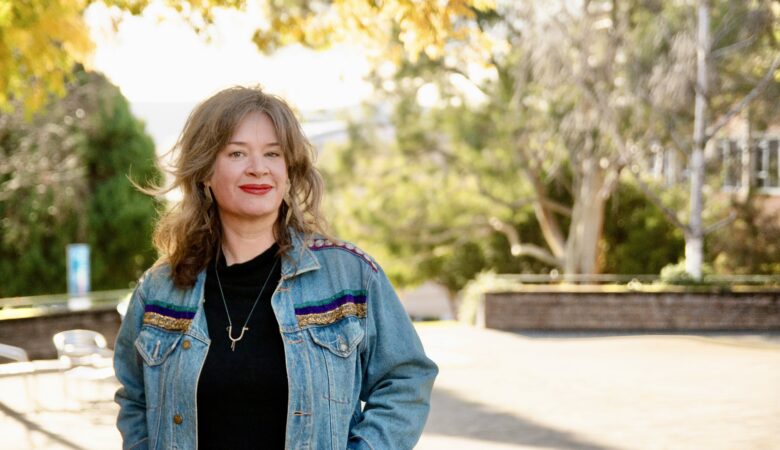For emerging playwright and UTAS alum Emma Skalicky, the journey to bringing her first full length play Medusa Waking to Salamanca’s Peacock Theatre was not without challenges, but the powerful production speaks to the mythic potential of Hobart’s independent theatre scene.
No stranger to the performing arts, Skalicky has acted in, produced and directed plays since 2014, with a recent short work of hers staged in Sydney at the Griffin Theatre. Currently employed as a first year English tutor at UTAS, Skalicky graduated from its English Department with Honours in 2019, with her topics of interest including hydrofeminism, hauntings and folk adaptations.
It was as her Honours project that Medusa Waking first came to be, writing the play with the support of her supervisor Dr Naomi Milthorpe and Associate Head of Research Dr Hannah Stark.
Medusa Waking is a magical realist reimagining of the myth of Perseus and Medusa. It tells the story of a teenage girl named Maggie, who while struggling to process a traumatic event in her past, locks herself in her bathroom only to be greeted by characters from Greek mythology.
Crucially focused on the psychological aftermath of sexual abuse, Skalicky took care to ensure that the play’s confronting themes were treated in a way that was compassionate rather than exploitative. Drawing from personal experience, Skalicky did this through extensive research into the stories of survivors and by punctuating the play with a kind of ‘gentle hope’ that acknowledges the lasting impacts of trauma.
Central to Skalicky’s exploration of trauma is the mythic figure of Medusa. From monstrosity to Freudian sexual archetype, the image of Medusa has had hundreds of faces. It’s only in the last hundred or so years, Skalicky says, that Medusa has been rehabilitated as a visually arresting feminist icon, one particularly emblematic of our current political moment. Her story rife with injustice and misunderstanding, Skalicky viewed Medusa as an inroads to expressing a multitude of survivors’ experiences:
“Survivors come in all shapes and forms. There are thousands of voices telling stories like this, or nothing like it at all. They’re all valid. This play or that Medusa – they’re just one. I feel like Medusa is an archetype that can express that. She’s so evocative, and it gives space for so many voices.”
While Skalicky was found strong support for Medusa Waking in director Natalie Venettacci and Bad Company Theatre, the COVID-19 pandemic proved a sizeable challenge to bringing the play to Hobart stages. With independent productions struggling to gain traction in the best of circumstances, when theatre did slowly begin to return to Hobart following the easing of gathering restrictions, it was accompanied by significant reduction in government support for the arts through grants.
In light of this, Skalicky and Bad Company turned to crowdfunding to get Medusa Waking off the ground. Collaborating with local artists to offer t-shirts, art prints and tote bags as rewards for donors, through overwhelming support from the community (and a viral TikTok), the team behind Medusa Waking managed to raise 150% of their fundraising goal:
“It really showed us how much people care about the arts, about paying artists, and about the story we were telling.”
Boasting strong central performances from Lizzie Jackson as Maggie and Simone Dobber as Mum/Athena, the cast of Medusa Waking succeeds in bringing Skalicky’s vibrant vision to life. Jackson deftly navigates the nuance of Maggie’s emotional trauma, her performance conveying vulnerability and anger in equal measure, while also communicating an unmistakable kindness and strength. Dobber’s warm performance as Mum is wholly contrasted by her dual turn as Athena, who commands the stage with her otherwordly presence.
The central dynamic between Jackson and Dobber deserves to be lauded with praise; Dobber effortlessly portraying the frustration with which Maggie’s mother tries to cut through her daughter’s isolation, culminating in their emotional reconnection at the play’s conclusion. Noah Casey’s Perseus is also to be celebrated, leaning in to the campness of the Grecian hero archetype with his bombastic timbre and dynamic use of gesture. The constantly rotating set – a worn bathtub, sink and toilet, provides a disorienting backdrop evocative of Maggie’s processing of her trauma.
An immensely powerful play, as Skalicky so elegantly puts it, Medusa Waking is ‘a story of recovery borne from the recovery of a story’. Speaking to the dire need for the experiences of survivors to be listened to, Skalicky’s feminist reclamation of the Medusa myth resituates them at the forefront of stories they’re too often forced in the background of.
Through its intimate exploration of trauma and historically voiceless women, Medusa Waking reaffirms the importance of Hobart’s independent theatre scene in amplifying important artistic voices.
Medusa Waking is expected to tour Tasmania later this year, with hopes of bringing the play to mainland festivals in 2022.







